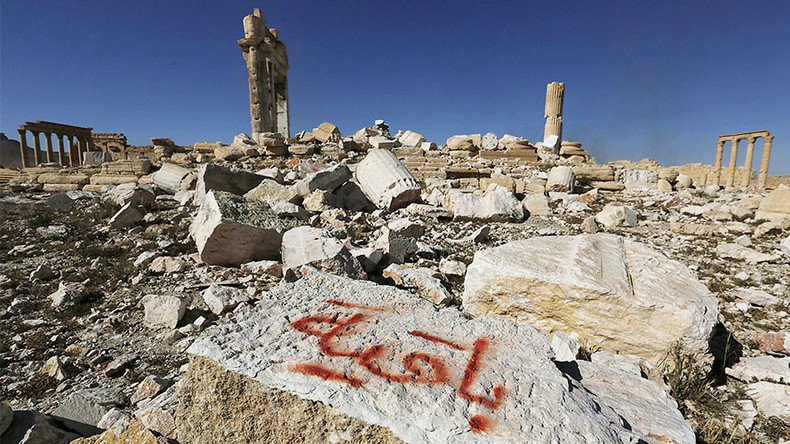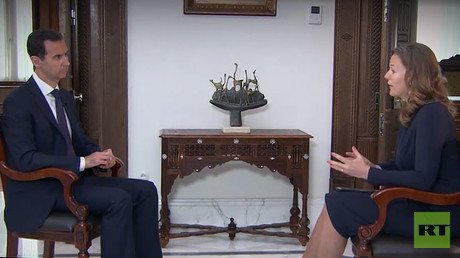ISIS seized weapons in Palmyra, US might strike them if Russia doesn’t – US general

Islamic State fighters who took Palmyra may have seized weapons and air defense equipment that could threaten the US-led coalition, its commanding general said, adding he expected Russia and Syria to deal with the “embarrassing” loss.
Several thousand Islamic State (IS, formerly ISIS/ISIL) fighters launched an all-out assault on Palmyra – and the nearby modern city of Tadmur – over the weekend, overwhelming the Syrian garrison by Sunday. Most of the civilian population has been evacuated, according to the governor of Homs Province. However, some of the defenders’ military hardware may have fallen into the terrorists’ hands.
"We believe it includes some armored vehicles and various guns and other heavy weapons, possibly some air defense equipment,” Lieutenant-General Stephen Townsend, commander of Operation Inherent Resolve, told reporters on Wednesday.
Asked to clarify what kind of weapons the terrorists had, the senior military officer in the US-led coalition against IS declined to elaborate, pointing out that he said they “might” have seized some. “I don’t care to characterize the size, type, or number – any of that.”
“Basically, anything they seize poses a threat to the coalition,” Townsend said. “If the Russians and the regime don’t strike it, we will,” he added.
If the Russians and the [President #Assad's] regime don’t strike it [#Palmyra], we will - @USArmy Gen. Townsend https://t.co/rm2DN5WyH0pic.twitter.com/f3zcUT99Bd
— Sputnik (@SputnikInt) December 14, 2016
The general called the loss of Palmyra an “embarrassment” to Russia, whose expeditionary force had aided the Syrian government in liberating the city from Islamic State in March.
“I expect that the Russians and the regime will address it here in short order,” Townsend said, referring to the Syrian government. “They lost it, it’s up to them to take it back.”
Syrian President Bashar Assad accused the US-led coalition of turning a blind eye to the terrorists’ major offensive.
“This is the response to what's happening in Aleppo, the advancement of the Syrian Arab Army, and they wanted to make this... or let's say, to undermine the victory in Aleppo,” Assad told RT.
“We liberated Palmyra before, we will liberate it once again. This is war, sometimes you win and sometimes you lose,” Assad told Rossiya 24 television on Wednesday.
Last week, US President Barack Obama waived a ban on shipping weapons into Syria to arm “foreign forces, irregular forces, groups or individuals engaged in supporting or facilitating ongoing US military operations.” The Pentagon also announced another 200 US troops will be sent into Syria, raising the number of US forces operating in the country to 500.
Gen. Townsend explained the troops were needed to “train additional Syrian partners” to prepare the advance on Raqqa, the city in eastern Syria that Islamic State has declared its capital. Referring to that operation as “the biggest and most complex thing” the US has undertaken in Syria to date, Townsend said that more forces were needed to overcome the expected IS resistance.
No US advisers are working with the Turkish troops or their “partner forces” in northern Syria, which are advancing on the IS-held city of Al-Bab, but Townsend did not exclude the cooperation resuming at some point in the future.
Al-Bab lies south of the 20-kilometer buffer zone that Turkey initially said it wanted to establish when it launched Operation Euphrates Shield at the end of August. Taking it would advance the Turkish objective of separating the Kurdish-held territory in Afrin from the US-backed Kurds in Manbij and Kobani.
“I don’t see that as a great concern for us,” Townsend said, adding that Al-Bab being under IS control is enough of a reason for the Turks or anyone else to take the city, a strategically important buffer between Aleppo and Raqqa.













